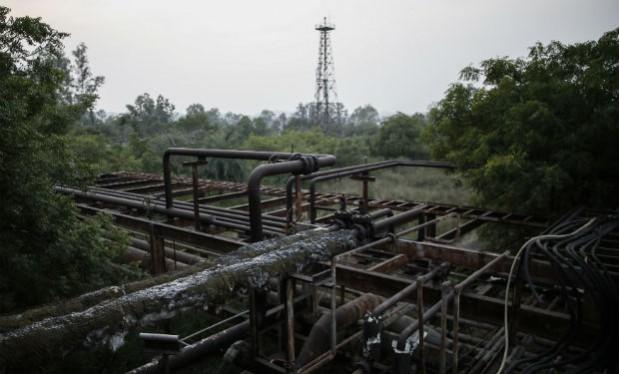
The failure of the Haryana government to prevent the expected danger of violence in the wake of an unfavourable ruling against controversial godman Gurmeet Ram Rahim Singh has brought not just Chief Minister Manohar Lal Khattar under scanner but also caused embarrassment to Prime Minister Narendra Modi. The Punjab and Haryana High Court has not just reprimanded the Khattar government accusing it of "politically surrendering", it has also said that Modi is the PM of India, not of the BJP.
The episode reminds one of the Bhopal gas tragedy of December 1984. Though the nature of the incident was different and the death tolls are incomparable, the circumstances were similar. Then, too, a majority government of the Congress at the Centre as well as the state government in Madhya Pradesh ruled by the same party had failed to rise to the occasion after the leakage of poisonous gas from the Union Carbide India Limited in the midnight led to the death of several thousands and left many more lakhs crippled in the MP capital.
The CEO of Union Carbide – the late Warren Anderson – had been given a free passage to leave the country and both the then chief minister of MP – the late Arjun Singh – and the then prime minister Rajiv Gandhi had faced flak for allowing it to happen.
Both instances spoke of political failure of two govts of same party
Singh had later blamed the then Union home minister PV Narasimha Rao for allowing Anderson to quit India and tried to defend Rajiv, which however doesn't surprise anybody given the culture of sycophancy that exists in that family-centric party. But the instances then and what happened recently in Haryana have an evil semblance: both spoke about irresponsibility displayed by the political leadership.
If the dynasty and its coterie had worked in tandem during the 1984 disaster, it is the saffron agency which is at work in 2017 and the consequences don't differ much. The BJP had little courage to condemn Ram Rahim Singh given the political advantage the latter's outfit brings with it and neither did it take things seriously enough to prevent the violence and loss of lives.

Political compulsion allowed disasters to happen
If reports of those who have closely followed the Bhopal disaster are to be believed, the then Congress governments at the Centre and MP had done little because New Delhi put under pressure by the American lobby to act in favour of Anderson. So in both cases, there were reasons of political compulsion – electoral or international.
Both disasters could have been avoided
Also, while the Khattar government was accused of taking adequate preventive measures to nullify violence, the industry authorities in Bhopal as well as the political leadership had also reportedly ignored the safety requirements for profit and allowed the disaster to occur.
From dynasty rule to RSS dominance
Also in both the Bhopal and Panchkula cases, the chief ministers of the state were not immediately removed because of the tragedy. Singh, a fierce loyalist to the Gandhi family, had continued as the CM of MP till March 1985 while we are yet to see the back of Khattar, a former RSS pracharak, after the violence.
There is a pattern in this politics. Isn't it?

















